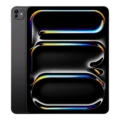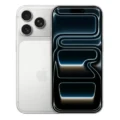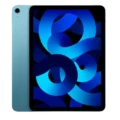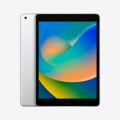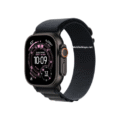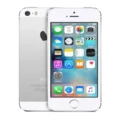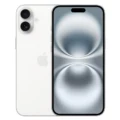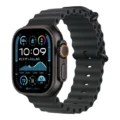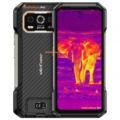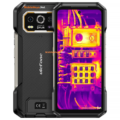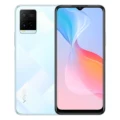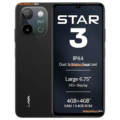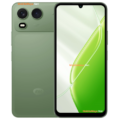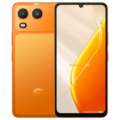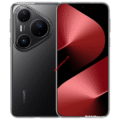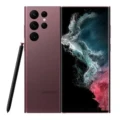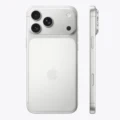Price List: Under Tk.5,000 | Tk.5001-10000 | Tk.10001-15000 | Tk.15001-20000 | Tk.20001-30000 | Tk.30001-40000 | More Mobiles
- Home
- All Mobile
- Apple
- Apple Ipad Air 2019
Apple Ipad Air 2019
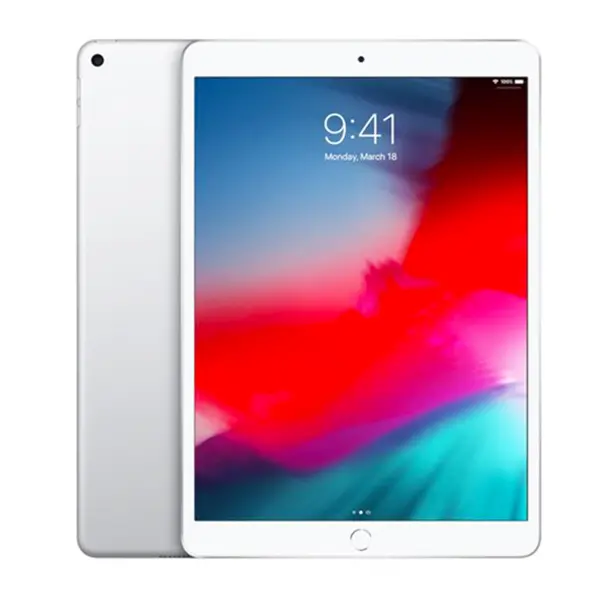

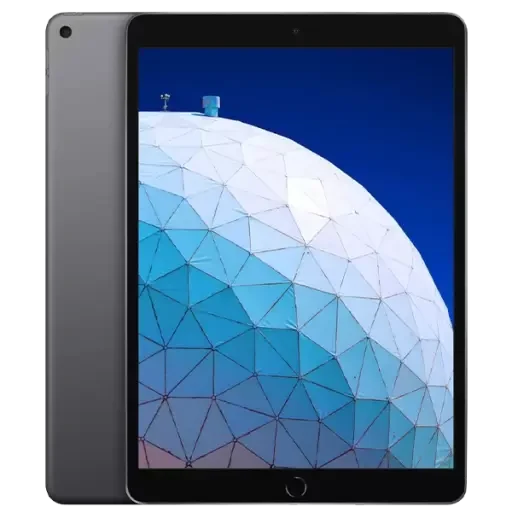
Specifications
Price in Bangladesh
| Expected Price | 52,900 |
General
| Device Type | Tablets |
| Model | A2153, A2123, A2154, A2152, iPad11,3, iPad11,4 |
| Announced | March, 2026 |
| Released | March, 2026 |
| Status | Available |
Hardware & Software
| Operating System OS => Every computer system run on a base software called Operating System (OS). Operating System controls all basic operations of the computer (such as smartphone, PDAs, tablet computers and other handheld devices). The Operating System allows the user to install and run third party applications (apps), apps are used to add new functionality to the device. | iOS |
| OS Version | v12.1.3 |
| Chipset Chipset is a group of integrated circuits designed to perform one or a more dedicated functions, often with real time computing constraints, Popular smartphones are equipped with more advanced embedded chipsets that can do many different tasks depending on their programming. | Apple A12 Bionic |
| CPU CPU (Central Processing Unit) mostly known as processors, CPU processes instructions in order to carry out certain functions that make your device operate properly. Processors are often described as the brain of computers, smartphones and tablets, Smartphones and tablets rely on processors to carry out their every task, Processors are an incredibly important factor in selecting any type of computing device, including your smartphone. | Hexa-core (2x2.5 GHz Vortex + 4x1.6 GHz Tempest) |
| CPU Cores | 6 Cores |
| Architecture | 64 bit |
| Fabrication | 7 nm |
| GPU GPU (Graphics Processing Unit) is a single-chip processor designed to rapidly manipulate and alter memory to accelerate the creation of images in a frame buffer intended for output to a display, This includes things such as lighting effects, object transformations, and 3D motion. | Apple GPU (4-core graphics) |
| RAM (Memory) RAM (Random Access Memory) is a type of computer memory that can be accessed randomly, any byte of memory can be accessed without touching the preceding bytes that allows information to be stored and accessed quickly from random locations. RAM is the most common type of memory found in computer systems, smartphones, tablets and other electronic devices. | 3 GB |
Design
| Dimensions | 250.6 x 174.1 x 6.1 mm (9.87 x 6.85 x 0.24 in) |
| Weight | 456 g (Wi-Fi) / 464 g (3G/LTE) (1.01 lb) |
| Colors |
Space Gray, Silver, Gold |
| Build Material | Glass front, aluminum back, aluminum frame |
Display
| Display Type Display Technology => A number of display technologies and types used in mobile phones => TFT (Thin Film Transistor), IPS (In-Place Switching), OLED (Organic Light Emitting Diode), AMOLED (Active-Matrix Organic Light-Emitting Diode), Super AMOLED (an even advanced version of AMOLED), Resistive Touchscreen (Resistive touchscreens contain two layer of conductive material with a very small gap between them which acts as a resistance), Capacitive Touchsceen (Capacitive touchscreen technology consists of a layer of glass coated with a transparent conductor) | IPS LCD |
| Size | 10.5 inches (26.67 cm) |
| Resolution | 1668x2224 px (FHD+) |
| Aspect Ratio | 4:3 |
| Pixel Density Pixel Density (PPI) is refers to the concentration of pixels on a particular display, measured in pixels per inch (ppi). Pixel density is calculated by dividing the diagonal pixel resolution of a display by its diagonal size, higher pixel density better display quality. | 265 ppi |
| Screen to Body Ratio | 78.3% |
| Touch Screen | Capacitive Touchscreen, Multi-touch |
| HDR 10 / HDR+ support |
Rear Camera
| Camera Setup | Single |
| Main Camera | 8 MP |
| Autofocus | Yes |
| OIS | |
| Flash Flash Light => There is commonly two types of flash lights are used in camera mobile phones, LED Flash (LED flash offers lower power consumption with drive circuitry that takes up very little room, LEDs can be strobed faster than any other light source), Xenon Flash (xenon flash produces an extremely intense full-spectrum white light for a very short duration) | LED Flash |
| Image | 3264 x 2448 Pixels |
| Settings | Exposure compensation |
| Zoom | Digital Zoom |
| Shooting Modes | Continuous Shooting High Dynamic Range mode (HDR) |
| Aperture | f/2.4 |
| Camera Features |
Touch to focus |
| Video | 1080p@30fps |
| Video Recording Features | 1920x1080 |
| Video FPS | 30 fps |
Front Camera
| Camera Setup | Single |
| Secondary |
7 MP, f/2.2, 31mm (standard) |
| Flash Flash Light => There is commonly two types of flash lights are used in camera mobile phones, LED Flash (LED flash offers lower power consumption with drive circuitry that takes up very little room, LEDs can be strobed faster than any other light source), Xenon Flash (xenon flash produces an extremely intense full-spectrum white light for a very short duration) | Retina Flash |
| Aperture | f/2.2 |
| Video | 1080p@30fps |
| Video FPS | 30 fps |
Battery
| Battery Type Battery Type => Cell phones run on various kinds of batteries depending on the manufacturer, phone size or shape and features. There are basically four types of cell phone batteries => Lithium Polymer, Lithium Ion, Nickel Metal Hydride and Nickel Cadmium. | Li-Ion (Lithium Ion) |
| Placement | Non-removable |
| Capacity Battery Capacity is a measure (typically in Amp-hr) of the charge stored by the battery, and is determined by the mass of active material contained in the battery. The battery capacity represents the maximum amount of energy that can be extracted from the battery under certain conditions. | 8134 mAh |
| Talk Time Talk Time is the longest time that a single battery charge will last when you are constantly talking on the phone under perfect conditions, Ambient temperature and highly dependent on the cellular network environment such as the distance to the closest cell network tower. | Up to 10 h (multimedia) |
Storage
| Storage Capacity | 64 GB, 256 GB |
| USB OTG |
Network
| 2G Network |
GSM 850 / 900 / 1800 / 1900 |
| 3G Network |
HSDPA 850 / 900 / 1700(AWS) / 1900 / 2100 |
| 4G Network |
1, 2, 3, 4, 5, 7, 8, 11, 12, 13, 14, 17, 18, 19, 20, 21, 25, 26, 29, 30, 34, 38, 39, 40, 41, 46, 66, 71 - A2153 |
| SIM SIM (Subscriber Identity Module) is a small card that contains mobile network subscriber's account information. This allows the phone using the card to attach to a mobile network. The SIM card is most commonly associated with GSM and UMTS mobile networks. Moving a SIM card from one phone to another allows a subscriber to switch mobile phones without having to contact their mobile network carrier. SIM cards can also be used by a phone to store limited amounts of data, such as phone numbers and text messages. | Standard SIM |
Data
| GPRS GPRS (General Packet Radio Service) is a packet oriented mobile data service on the 2G and 3G cellular communication system's global system for mobile communications (GSM), Generally, GPRS is used for the purpose of wireless data transfer, such as sharing pictures and videos or browsing the Internet via a mobile phone connection. | |
| EDGE EDGE (Enhanced Data GSM Environment) is a wireless network technology generally considered the next step in the 2G network offers data transfer rates up to four times faster than ordinary GSM networks, Generally, EDGE is used for the purpose of wireless data transfer, such as sharing pictures and videos or browsing the Internet via a mobile phone connection. | |
| Speed | HSPA 42.2/5.76 Mbps, LTE (CA) Cat16 1024/150 Mbps |
| Web Browser Web Browser => a web browser is a software application used to locate, retrieve and display content on the World Wide Web, including Web pages, images, video and other files, The primary function of a web browser is to render HTML, the code used to design or markup webpages. | HTML5 |
Messaging
| SMS SMS (Short Messaging Service) is a text messaging service component of phone, Web, or mobile communication systems. It uses standardized communications protocols to allow mobile phone devices to exchange short text messages over the networks. | Yes |
| MMS MMS (Multimedia Messaging Service) is a standard way to send messages that include multimedia content (audio clips, video clips and images) to and from mobile phones over wireless networks using the WAP protocol. | |
| Email Email (Electronic Mail) is a system for receiving, sending, and storing electronic messages, Similar to a letter, email is text messages that may contain files, images, or other attachments sent via the internet to a recipient by using applications and software prograps. An email address is required to receive email, and that address is unique to the user. | Yes |
| IM IM (Instant Messaging) is an exchange of text messages through a software application, it enable you to create a kind of private chat room with another individual in order to communicate in real time over the Internet. | Yes |
Connectivity
| Bluetooth Bluetooth is a wireless communications technology for exchanging data between mobile phones, headsets, computers and other network devices over short distances without wires, Bluetooth technology was primarily designed to support simple wireless networking of personal consumer devices. | 5.0, A2DP, EDR |
| Wi-fi Hotspot | |
| Infrared Infrared connectivity is an old wireless technology used to connect two electronic devices. It uses a beam of infrared light to transmit information and so requires direct line of sight and operates only at close range. | |
| USB | Lightning, USB 2.0 |
| GPS GPS The Global Positioning System is a satellite-based radio navigation system, GPS permits users to determine their position, velocity and the time 24 hours a day, in all weather, anywhere in the world, In order to locate your position, your device or GPS receiver must have a clear view of the sky. | GPS, GLONASS (LTE model only) |
| NFC NFC (Near field communication) is a set of standards for smartphones and similar devices to establish peer-to-peer radio communications with each other by touching them together or bringing them into proximity, usually no more than a few inches. |
Media
| FM Radio | No |
| Loudspeaker | Yes, with stereo speakers |
| 3.5mm Jack | Yes |
Sensors & Security
| Fingerprint Sensor |
More
| Made By | USA |
| SAR | 1.19 W/kg (body) |
| SAR EU | 0.99 W/kg (body) |
Performance Tests
Apple iPad Air 2019 Price in Bangladesh
The Apple iPad Air 2019 is available in Bangladesh starting at approximately ৳52,900. It comes with two storage options: 64GB and 256GB, catering to users with varying storage needs. Positioned as a mid-range tablet in Apple’s lineup, this iPad Air combines a sleek design with solid performance powered by the Apple A12 Bionic chipset.
Featuring a 10.5-inch Retina display with a crisp 1668 x 2224 pixel resolution, it delivers vivid visuals perfect for media consumption and productivity. The tablet sports an 8MP rear camera and a 7MP front-facing camera, supporting 1080p video recording. With iOS 12.1.3 out of the box and a powerful A12 Bionic chip, this device balances performance and efficiency well. Its premium aluminum build and relatively lightweight design make it a stylish yet practical choice for everyday users.
Apple iPad Air 2019 Specifications
Display and Design
The Apple iPad Air 2019 features a 10.5-inch IPS LCD display with a sharp resolution of 1668 x 2224 pixels, delivering Full HD+ visuals at a 4:3 aspect ratio. The pixel density stands at 265 ppi, ensuring clear and vibrant images. It supports HDR10 and HDR+ content, enhancing dynamic range for a better viewing experience. The touchscreen is capacitive and multi-touch, providing responsive interaction.
Design-wise, the tablet boasts a glass front paired with an aluminum back and frame, giving it a sturdy yet premium feel. Measuring 250.6 x 174.1 x 6.1 mm and weighing just around 456 grams (Wi-Fi model), it is slim and lightweight, ideal for portability. Available in Space Gray, Silver, and Gold, the iPad Air 2019 offers a classic Apple aesthetic with minimal bezels for a modern look.
Performance and Processor
Under the hood, the iPad Air 2019 is powered by Apple’s 7nm A12 Bionic chipset, featuring a hexa-core CPU configuration: 2 performance cores running at 2.5 GHz (Vortex) and 4 efficiency cores at 1.6 GHz (Tempest). This setup ensures a balanced mix of power and efficiency for smooth everyday use.
The device comes with 3GB of RAM and Apple’s 4-core GPU, which handle gaming, video editing, and multitasking tasks competently. Storage options include 64GB and 256GB variants; however, there is no expandable storage via microSD. Overall, the performance is reliable for both casual users and those needing moderate power for creative or productivity applications.
Camera and Video
The rear camera on the iPad Air 2019 is an 8MP shooter with an f/2.4 aperture, equipped with autofocus and an LED flash. It captures images at a resolution of 3264 x 2448 pixels and supports digital zoom, continuous shooting, and High Dynamic Range (HDR) mode for enhanced photos.
Video recording is capped at 1080p at 30fps, suitable for casual video capture and video calls. On the front, a 7MP camera with f/2.2 aperture and Retina Flash supports 1080p video recording at 30fps, making it a good option for selfies and FaceTime calls.
Battery and Charging
The iPad Air 2019 is equipped with a sizable 8134 mAh non-removable lithium-ion battery. It offers up to 10 hours of multimedia usage on a single charge, suitable for long work or entertainment sessions. Charging is handled via Apple’s Lightning port, supporting USB 2.0 speeds. However, it lacks wireless charging and fast charging features, which is a consideration for users seeking rapid recharge.
Connectivity and 5G Support
Connectivity-wise, the iPad Air 2019 supports a wide range of network bands, including 2G, 3G, and 4G LTE, but it does not support 5G. It is available in Wi-Fi-only and Wi-Fi + Cellular models, with the latter supporting standard SIM cards.
Other connectivity features include Bluetooth 5.0 with A2DP and EDR support, GPS and GLONASS (in LTE models), Wi-Fi hotspot functionality, and NFC. It uses Apple’s proprietary Lightning connector for charging and data transfer.
Additional Features
The device offers a range of sensors, including a fingerprint sensor (Touch ID) integrated into the home button for secure unlocking. It runs iOS 12.1.3 out of the box with access to Apple’s ecosystem of apps and services.
The iPad Air 2019 also includes stereo speakers, a 3.5mm headphone jack, and a sleek aluminum body that offers durability. There is no official water resistance rating, so users should take care around liquids.
Reason to Buy
- Powerful A12 Bionic chip: Great for gaming, multitasking, and creative apps.
- Large, vibrant 10.5-inch display: Ideal for media consumption and productivity.
- Lightweight and premium build: Easy to carry with a stylish aluminum design.
- Decent battery life: Up to 10 hours on a single charge.
- Multiple storage options: Choose between 64GB and 256GB depending on your needs.
- Touch ID security: Fast and reliable fingerprint unlocking.
- Stereo speakers and headphone jack: Enhances audio experience.
Verdict
The Apple iPad Air 2019 is a versatile mid-range tablet that balances performance, design, and price effectively. Its sharp display, powerful A12 Bionic chipset, and premium build quality make it an excellent choice for students, professionals, and casual users alike. While it lacks 5G support and fast charging, its reliable battery life and rich iOS ecosystem compensate well. If you want a dependable tablet for everyday tasks, entertainment, and light productivity, the iPad Air 2019 remains a solid pick.
FAQ
Q: Does the iPad Air 2019 support 5G connectivity?
A: No, the iPad Air 2019 supports 4G LTE but does not support 5G networks.
Q: Can I expand the storage on the iPad Air 2019?
A: No, the device does not support microSD cards; storage is fixed at 64GB or 256GB.
Q: What iOS version does the iPad Air 2019 run?
A: It ships with iOS 12.1.3 but supports updates to later iOS versions.
Q: Does the iPad Air 2019 have a headphone jack?
A: Yes, it includes a 3.5mm headphone jack for wired audio devices.
Q: What is the battery life like on the iPad Air 2019?
A: It offers up to 10 hours of multimedia usage on a full charge.
User Reviews
Disclaimer Note
We do not guarantee that the information of this page is 100% accurate and up to date.

